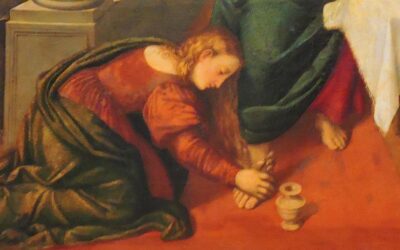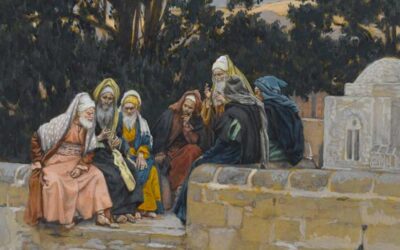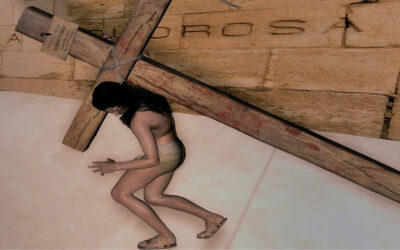Once upon a time a group of people saw that a machine was needed to make something hard and difficult more easily done. They put their heads together and came up with a handy little machine called “Religion.”
The Religion Machine would make life easier for everyone they said. With the Machine, we don’t have to waste precious time relating to a real God Who loves us. The machine would take these complex processes and break them down into a simple three-step process that anyone could follow, reducing God to a faceless, personless ideology of good works. The result would be a mass-production of religious people who all spoke, thought, acted, and believed the same way.
Things went very well for a while. The Religion Machine worked just like it was supposed to. Churches were built, movements were started, crusades were held, programs were implemented. The inventors congratulated themselves on making Religion so efficient.
But you and I know that machines require a lot of maintenance. Parts have to be replaced. People wanted the Religion Machine to be bigger, better, and faster each year. Research and development expense was incurred, testing expenses, raw materials and warehousing. The Religion Machine had to have qualified people to work on it, qualified people to run it, qualified people to supervise the people who run it, and so on.
With all the improvements and modifications to the original design, the Religion Machine got so big that they had to house it someplace; now they had factory overhead: the property, the specialized plant equipment, the electrical and water requirements, more work crews, the support staff, the management, still more parts, upgrades, routine maintenance, all the hidden costs associated with keeping the Machine running.
No one knew just how big the Religion Machine would get. The inventors would have never dreamed that their little invention would one day turn into a big business, but it did. People picked up their families and moved to live and work close to the Machine. There’s money there, a chance to get ahead, a chance to settle down, a nice place to raise their kids. The Machine is a boost to the local economy because it produces jobs and goods. It’s in everyone’s interest to keep the Machine running along.
The people took great pride in their work. Take a drive with them to any part of the country and they would point to the impressive array of expensive church buildings, sprawling seminaries, and mega-church outreach centers. “We helped put that one together,” they’d say. “Thank God for the Religion Machine! How did we get along without it before?”
But there’s another side to the story. Oh, the work is simple enough. “Do what you’re told. Push this button, pull that lever, flip that switch.” Keep producing, keep the Machine running. But there’s a human toll being exacted on the people who are running the Machine. Just another cog in the wheel, they begin to stop thinking for themselves; they depend on the supervisors to tell them what to do. They go home tired day after day (their busiest day is Sunday). They always work overtime and their family life is non-existent. Even when they’re home they think about work. Production is the name of the game; keep the Machine running no matter what; produce more with less.
People always get injured on the job. It’s hot, dirty work. And noisy. The Machine makes so much noise that all the workers eventually develop acute hearing loss. The light is so dim that the employees have become very narrow-eyed and squinty, not able to withstand bright light. But somehow the security that comes from getting paid each week is more important than the side-effects. So the work goes on.
Besides, where else could they go? What else could they do? Financial commitments based on that paycheck have been made: houses mortgaged, cars financed, durable goods charged. If the Machine stops running, the paychecks stop coming, and it means bankruptcy for the workers and the community. So on and on it goes.
Every once in awhile a pay raise comes. Some live long enough to retire, but most of the workers die young from stress, are injured on the job and permanently disabled, or have nervous breakdowns. But no matter what, the Machine kept running.
Then the unexpected happened.
The Religion Machine used a synthetic, man-made oil for fuel to keep it running.
The oil ran out. The Machine ground to a halt.
The workers were in a panic. No more fuel? How would the Machine run? What about their job? What about their paycheck? Who would take care of their families?
“What about natural oil?” someone asked. No that wouldn’t work. They tried that years ago. Genuine oil would not run the Religion Machine.
The supervisors cursed and swore. How could they get the Machine running again?
There was only one thing left to do.
The doors were locked, and the gates closed tight. Armed security gathered the workers together and had them form a line leading up to the top of the combustion chamber, the fiery inferno which fueled the Religion Machine.
One by one they were cast into the fuel tank. The Machine sparked and began to hum again.
“More people! We need more people over here!” Like lambs being led to the slaughter, the deaf, dumb, and blind workers were pushed over the precipice to be used as fuel for the Religion Machine. Next it was their wives, husbands, children, parents, brothers, sisters, all thrown alive and screaming into the Machine. The houses and cars, the clothing and jewelry, the furniture and possessions were all confiscated and dumped into to the Religion Machine to add more fuel for it to run.
At last everything that could be used for fuel had been used. It would not be enough, and it had all been in vain. Once again the Religion Machine ground to a halt, and no one was around to start it up again. The supervisors went out into the community to try and recruit new workers, but after hearing what had happened to the last shift no one would take the job.
Today those supervisors are dead and gone. The Religion Machine was dismantled by the townspeople, the parts scattered to the four winds, never to be assembled again.
The problem with the Religion Machine was that it started out as a neat invention designed to help people, but it wound up hurting them. The Machine was made for man, but soon man lived for the Machine and became dependent upon it.
Once upon a time another group of people saw that a machine was needed to make something hard and difficult more easily done and give them more leisure time. They were even more talented, technologically advanced, and affluent than the first group of inventors. So they put their heads together and came up with a handy little machine called “American Christianity”…












